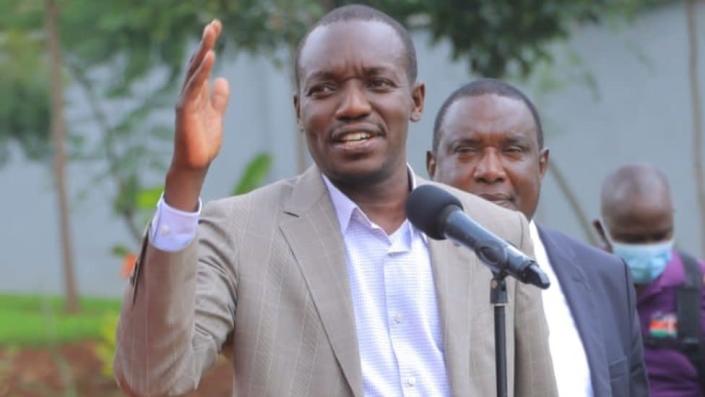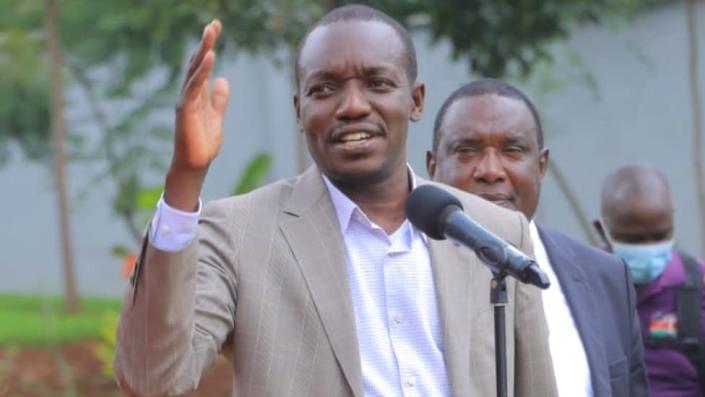
In our series of letters from African journalists, Waihiga Mwaura writes about the political shake-up in Kenya’s counties following the 9 August general election.


There are new sheriffs in town.
By town I mean the 47 counties that constitute Kenya, and by sheriffs, I mean the newly elected governors, a whopping 30 of whom are first-timers on the job.
In 2010 Kenya promulgated a new constitution which demarcated the country into 47 devolved units run by county governments headed by governors.
Many of the new governors have hit the ground running since they were sworn in on 25 August, giving strong directives, especially in regards to their anti-corruption and cost-cutting agendas.
Some of the discoveries that they have made since taking over seem to lend credence to a suspicion harboured by many that corruption was simply devolved to the counties after Kenya moved away from a centralised system of government.
For example, the governor of Kisii, Simba Arati, revealed that the county had only 82 vehicles and yet an estimated 256 drivers were on its payroll, some of whom did not even have valid driving licences.
On 3 September, Mr Arati told Citizen TV that there were 861 individuals on his payroll whose job descriptions were not clear.
And he is not alone – other governors are ordering financial audits and staff headcounts as they seek to understand what ails their respective counties.


Another governor, Wavinya Ndeti of Machakos county, has revealed that some of her government’s vehicles did not even have number plates and yet budgets had been set aside for the transport department.
A provincial administrator-turned-governor has also won praise for his harsh office rules after turning away top officials from a meeting for arriving minutes later than him.
Governor George Natembeya of Trans-Nzoia county in western Kenya ordered doors to be closed for anyone arriving past 09:00 local time, the time set for the meeting.
The meeting with county executive committee members, the equivalent of cabinet ministers, was meant to discuss development plans for the next five years.
According to Karen Mwangi, the chief executive of Intel Research Solutions in Kenya, these new governors are aware that in five years’ time their work will be assessed by the voters and that is why several incumbent governors were sent home after only one term in last month’s elections.
She believes that Kenya’s investigative agencies must swing into action and bring to book former governors who oversaw corruption that led to huge debts caused by payments to ghost, or non-existent, workers and unpaid bills, among other issues.
County governments were set up because of the dissatisfaction with the highly centralised model of governance, which was blamed for an imbalance in resource allocation, development inequalities, the marginalisation of some communities and failure to involve the people in governance.
With devolution now entering a second decade, it may be the right time for stocktaking – to understand what has worked and what hasn’t in these decentralised units.


A quick glance reveals that most of the incoming governors will have to confront the headache of huge bills, which stand at about 130 billion Kenyan shillings ($1bn; £870m) that their predecessors left behind.
The bills include unpaid salaries owed to workers, and delays in paying suppliers of good and services.
The counties were also put to the test at the height of the Covid-19 pandemic as many of them, seven years into devolution, seemed unable to muster enough intensive care unit beds for patients.
The national government and other development partners stepped in to support them but some governors were then accused of channelling funds for other uses.
The transfer of power to county level was meant to take the focus away from the presidency in the hope that Kenyans would look at what was happening in their counties.
But one wonders whether our country simply added another layer of government that consumes resources and operates inefficiently, while the fight for the presidency remains the main focus, as we saw in the elections, when Deputy President William Ruto defeated his main challenger, Raila Odinga, by the narrow margin of 50.5% to 48.8%.
Whatever the case, I am sure many Kenyans are hoping that the sprit with which the new governors have begun in office will continue, even if this means rubbing their predecessors the wrong way.
And may there be a similar spirit in the national government, as a new administration takes over with the opportunity to clean up the skeletons in the closet of the outgoing government.
More Letters from Africa:
Follow us on Twitter @BBCAfrica, on Facebook at BBC Africa or on Instagram at bbcafrica






